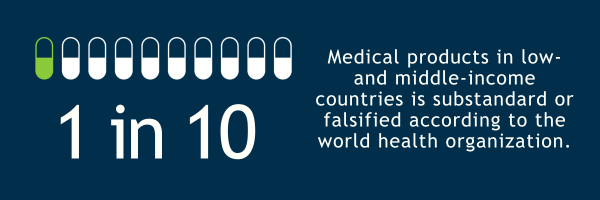The pharmaceutical industry has been going through a seismic shift as digital pharmacies are changing how patients receive their medications. In an era where convenience is king, the ability to have prescriptions filled online and delivered straight to the doorstep is a welcome evolution for many. However, as with any significant change, this new model introduces complexities, and with each handoff from manufacturer to patient, risks arise. The solution, however, may lie in the sophisticated realm of artificial intelligence (AI), which holds promise for securing the pharmaceutical supply chain against counterfeits and contamination.
The Rise of Digital Pharmacies
Digital pharmacies have capitalized on the intersection of technological advancements and consumer demand for convenience. No longer do patients need to wait in line at the local drugstore; instead, they can have their prescriptions processed, filled, and delivered without leaving their homes. This service is particularly beneficial for the elderly, those with chronic conditions requiring regular medication, and people living in remote areas. Moreover, the integration of telehealth services has streamlined the process of obtaining prescriptions, further embedding digital pharmacies into the healthcare routine of millions.
Added Complexity Equals Added Risk
Each step in the delivery process adds layers of complexity that can increase the risk of counterfeit products infiltrating the supply chain. These risks aren’t just theoretical; they have real-world implications for patient safety. The World Health Organization (WHO) estimates that 1 in 10 medical products in low- and middle-income countries is substandard or falsified. This problem isn’t confined to developing nations; developed countries are also at risk, as their increasingly complex supply chains offer more opportunities for illicit activities.
Traditional security measures like serialization and secure packaging are crucial, but they may not be enough. For instance, a medication could be tampered with or stored improperly during transit, leading to reduced efficacy or, worse, harm to the patient. Additionally, the more intermediaries involved in the distribution process, the harder it is to track the origin and handling of medications, increasing the risk of counterfeit goods entering the market.

AI: The Guardian of the Supply Chain
The challenges of securing the supply chain might seem daunting, but AI presents a powerful tool to enhance protection against counterfeits. AI systems can be trained to scrutinize vast amounts of data to identify patterns and anomalies that would be invisible to human analysts. For instance, machine learning algorithms can monitor and analyze patterns across the supply chain to group identical counterfeits
Moreover, AI can improve the traceability of drugs by analyzing and managing serialization data, ensuring that each pill can be tracked back to its source. Image recognition technologies can inspect and verify medications and packaging at various points in the supply chain, flagging any discrepancies for further investigation.
These AI-driven systems can also be integrated with existing security measures to create a multi-layered defense strategy.
The expansion of digital pharmacies is a testament to the digital transformation of healthcare. Market statistics highlight not only the rapid adoption of digital pharmacy services but also the escalating complexity and associated risks within the pharmaceutical supply chain. As these trends continue, leveraging advanced technologies like AI for counterfeit detection becomes not just innovative but essential. AI is poised to be the linchpin in ensuring the safety and integrity of pharmaceuticals, providing reassurance that the convenience of home delivery does not come at the expense of quality or patient safety.


